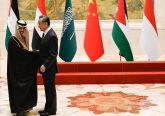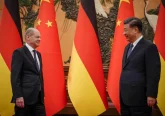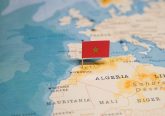In 2015 China launched the Digital Silk Road (DSR hereafter). The DSR is an essential part of the One Belt, One Road (BRI) strategy with significant domestic and foreign policy objectives.
China has made enormous investments that have allowed it to achieve rapid technological advancement and economic growth. As of 2021, Chinese firms were three of the world’s largest technology companies by revenue. According to the World Intellectual Property Organisation (WIPO), in 2020 China reported 1.5 million patent applications, 2.5 times more than the second leading country, the United States. The DSR is part of China’s plan to spread its technical and proprietary knowledge by building telecommunications, data, and financial infrastructure in countries participating in the BRI.
The Nigerian digital sector is an example of how African countries have successfully engaged with the DSR. Chinese technology firms such as Zhongxing Telecommunications Equipment (ZTE) and Huawei have invested approximately $1,150 million in the country over the last decade. Zambia is also home to programs developing its telecommunications and broadcasting sector. Even the African Union (AU) has benefitted from the Chinese partnership with China as the key partner for constructing its new headquarters. DSR provides important opportunities for African countries as it provides access to fast and cheap internet, improved telecommunications across the continent, and an upskilled workforce.
However, these arrangements are not entirely devoid of controversy. Countries like the United States and the United Kingdom have sanctioned ZTE and Huawei, and a 2018 report claimed that China had bugged the AU headquarters. Perhaps most concerning, in 2020, a Zambian youth was arrested for allegedly insulting the country’s president on Facebook. Although China’s DSR has encouraged digital development in developing countries, there are still concerns about the potential abuse in the Sino-African relationship, particularly its impacts, such as the diffusion of Chinese-style repressions and the erosion of democracy in African nations.
This leads to a significant challenge – how can African economies responsibly engage with the learning and technological development opportunities that DSR provides?
Creating China-Capable Bureaucracies
A key point is ensuring that diplomats can effectively manage and oversee the relationship between China and African countries. Currently, the South African and Nigerian ambassadors have only domestic expertise, and neither speak Mandarin. This is a problem because it means they cannot fully engage with the country they are supposed to work in. For example, they can only work with Chinese state press releases and announcements once they have been interpreted. A 2013 UK report titled Lost for Words found that diplomats that could not speak the language of their appointed country were at a significant disadvantage.
Ensuring institutions ranging from foreign affairs to trade can engage exhaustively with China will contribute to a better understanding of the nuance required to provide mutually beneficial partnerships. There should be a concerted effort to create a pipeline of civil servants educated in international trade negotiation and Chinese commerce, culture, and language. This effort would ensure a coherent China strategy based on facts and figures – which can assuage misinformation fuelled by misunderstanding—in turn, ensuring that Africans understand the technology and contracts to push for their objectives even when it conflicts with China’s.
A practical way to achieve this would be to create a foreign service program similar to countries like the US and the UK, with a commitment to push recruitment. For example, Nigeria’s foreign service academy suffers from a lacklustre physical and online presence. The academy lacks funding and an easily accessible website. There is a need for African countries to set up well-defined and easily accessible programs to help a cohort of officials committed to representing and furthering the continent’s interests and policies abroad.
Ensuring Funding Transparency
A 2021 research project by the Center for Global Development titled How China Lends found that China benefits from countries prioritising opaque borrower transparency. In these cases, lending terms are not easily disclosed, and where credit is not tied to increased transparency and good governance reforms. However, while there are advantages to the ability to urgently acquire cheap and effective technology, which the DSR provides, such arrangements still require frameworks to ensure reasonable and equitable use of such investments.
Possible solutions include utilising multilateral agencies to verify, audit, and publish contracts. African countries can create domestic accountability policies that allow citizens to view contracts for infrastructure technology development. These policies can review the confidentiality clauses in Sino-African agreements that prevent the release of loan information which helps Africans keep their governments accountable. Effective communication can help African governments plan and assuage fears about undue Chinese interference in domestic affairs.
The Path Forward for Africa
During the October 2022 20th Party Congress, President Xi reiterated China’s commitment to asserting it a global influence and helping developing countries achieve economic growth. China’s DSR is a direct attempt to support digital transformation in emerging economies. So far, China has signed DSR agreements with several emerging economies – a sign of how appealing it is in growing digital sectors. However, the sustainability and effectiveness of the program depend on ensuring that domestic concerns about the impact on democracy are addressed.
African countries should take active steps to benefit from DSR and ensure that domestic legislation and rights are not affected and subject to abuse by errant parties. The continent’s leaders should also ensure that there is careful cultivation of a talent pool able to effectively participate in the growing number of sectors in which China shows its influence. Furthermore, any investment arrangements must be subject to an external audit with clearly defined terms and acceptable neutral bodies. This will ensure that China and DSR recipient countries are aligned on expectations and project delivery.







